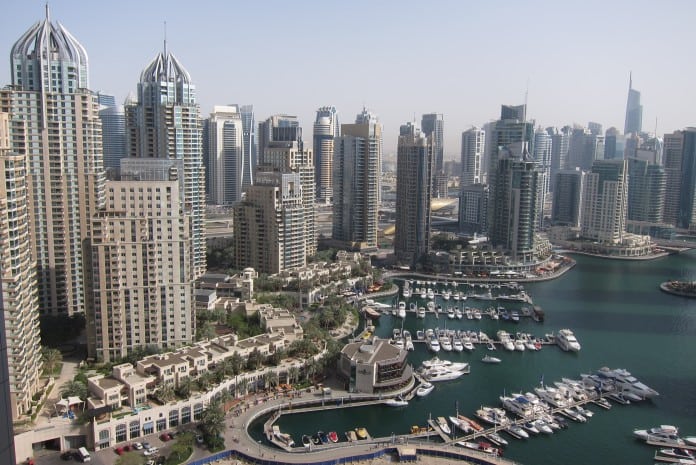
Dubai property prices rose on average by 21.7 per cent in the 12 months, between the second quarter of 2012 and the second quarter of 2013, according to London-based property broker Knight Frank. It wasn’t revealed how the consultancy firm came up with this exact number.
Dubai’s real estate market recorded the largest year-on-year average price increase worldwide. The average property price surged 21.7 per cent. The increase is mainly viewed by industry insiders as a correction on market activity from the financial crisis period.
In addition, the Arab Spring drove an increase in property investment by expatriates. Dubai is being seen as a safe location for refugees from Arab Spring disturbed countries. It is also becoming the ideal location for Saudi, Kuwaiti, and Qatari investors looking to buy a second home to use during the holiday seasons. However, the majority of the property buyers are end users, but not large scale investors.
Other factors lending to the higher average prices were that Dubai residents were now looking to purchase instead of rent due to increased rental rates and lower mortgages. Rents in Dubai are constantly rising mainly driven by positive media coverage and the efforts of landlords to recover losses from previous years. People read that the rents are going up, landlords ask for more money and this is how the rents are jumping. In terms of demand, a large number of units in the city still remain unoccupied. For instance, in Downtown Dubai approximately ten new towers were released in the second quarter of 2013, which remain nearly empty until today. Still, the owners who came into possession of their new properties are trying to secure reasonable return of investment and ask for unreasonably high rents. Newcomers to Dubai lack basis for comparison and often give in to high rent demands.
The Real Estate Regulatory Agency (RERA) control of supply flowing into the market had also impacted property pricing. Until today, a large number of fully completed residential buildings are not being released to the market. This is the case, for example, with a few residential and commercial towers in Business Bay.
Property prices could soften by the end of the year when more new supply enters the market. The market is generally not expected to continue to rise gradually.
There is a number of factors contributing to the strong growth of Dubai’s residential sector in recent months. These include a growing domestic economy and increasing levels of in-migration to Dubai. Although Dubai is out-performing its regional peers, it is important to note that residential growth in the Emirate has been concentrated mainly in prime locations and that average rates mask a significant variation in performance in the city.
Comparatively, the Global House Price Index found that the in the six months leading to end of second quarter 2013 prices were up by 14.7 per cent.
From April till the end of June, Dubai property prices were up by just five per cent. In comparison Taiwan (7.4), Estonia (5.2), US (7.1), Lithuania (5.4), all had higher average property price percentage growth than Dubai.
The report found that Greece recorded the largest annual fall in mainstream prices for the fourth consecutive quarter, declining by 11.5 per cent.
For the first time since 2010, European countries recorded positive annual price growth. However, the average 0.7 per cent uplift over the past 12 months masks a sharp divergence in performance between individual countries. Turkey was the strong performer with 12.2 per cent growth, and Greece was the weakest. Europe recorded positive annual growth for the first time since 2010, but it is still the poorest performing global region.























![The Square at Nad Al Sheba Gardens Now Open hope tax season treated you well! Just checking in—ready to refocus on growing your business? I remember how we discussed scaling your [specific aspect of their business, e.g., online presence] but paused due to time constraints. We now offer a streamlined 6-month plan that delivers real results without adding to your workload. Let me know if you'd like to chat—I’d love to help you pick up where we left off!](https://www.dubaichronicle.com/wp-content/uploads/2024/11/The-Square-5-218x150.jpg)








